
The doll-like figure is likely to be Louise Crane, who lived with Bishop for a while in Key West. The composition, organised around strong rectangles, evokes a sense of security. Against the mixed brown and neutral tones of the blanket, the red book (a visual pun?) recalls the soft left-on reading light.
Photograph: Carcanet Press Photograph: Action images
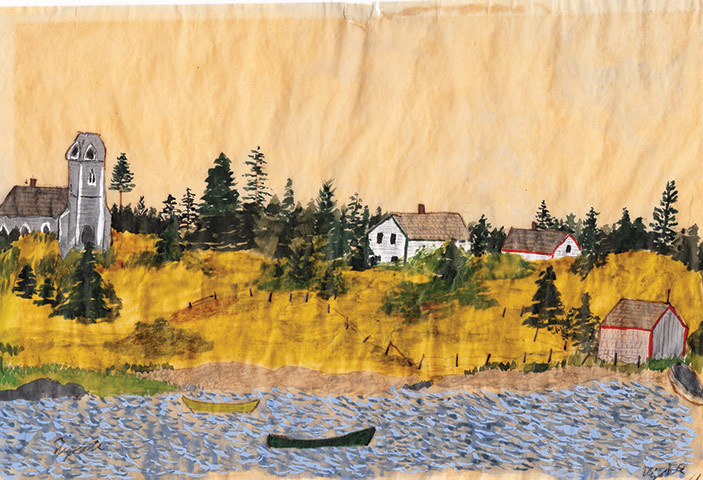
Divided into horizontal bands of sky, land and water, the painting, suffused with ambient light, contains small deft touches - like the red outlining on two of the houses, and the wandering fence that creates a central triangle to lead the eye into the picture.
Photograph: Carcanet Press Photograph: Action images
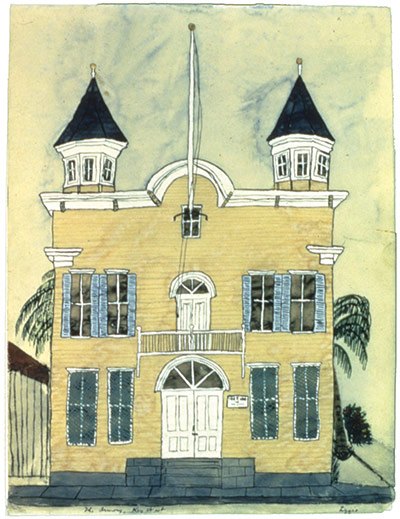
The Armory is on White Street, not far from the house Bishop lived in at 624, which is now a national literary landmark. Curiously, in a town of "piano-box houses", as Wallace Stevens called Key West architecture, Bishop focused more in her work on its large public buildings.
Photograph: Carcanet Press Photograph: Action images
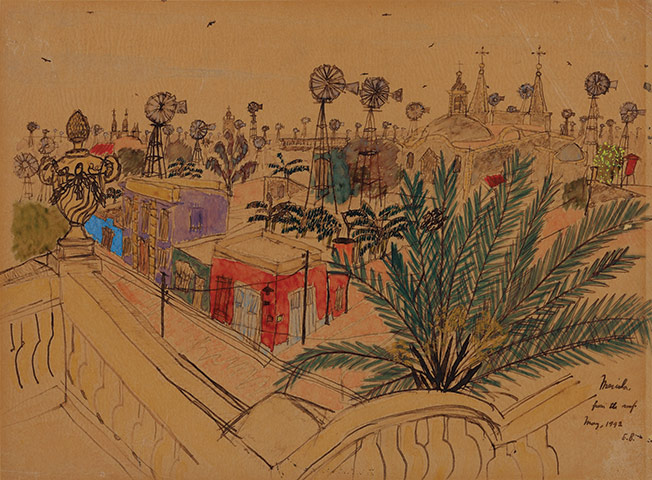
The view fans out from the edge of a hotel balcony with the verve of a David Hockney (who was five the year it was painted). Spots of colour pin down the busy composition of palms, steeples and over 50 windmills.
Photograph: Carcanet Press Photograph: Action images
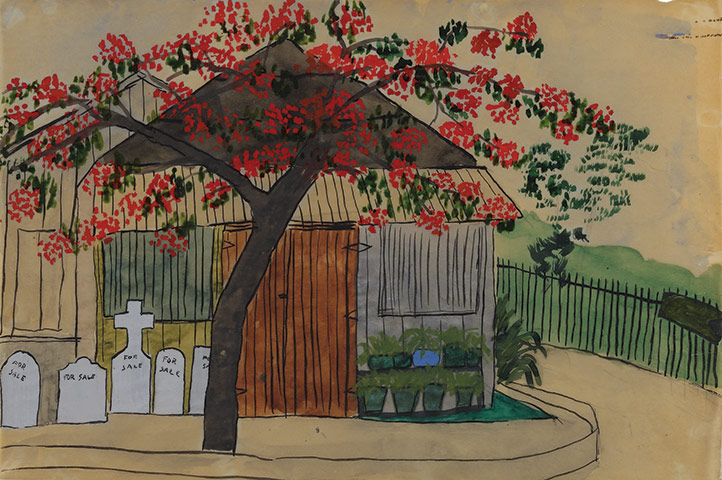
Bishop's use of pen-and-ink vertical lines has a mature assurance in this Key West picture. The blossoming Poinciana tree floats gracefully over the business of life and death. Beneath it, the neon blue of a flower box has the pictorial value of a well-placed full stop.
Photograph: Carcanet Press Photograph: Action images
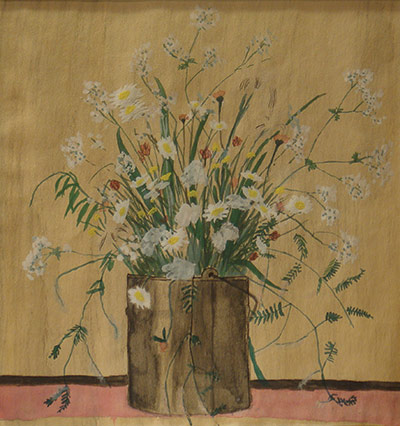
Set dead center in the close foreground, the bucket of flowers has the aplomb of a little masterpiece. Gray washes convey the shine of the paint bucket as well as a band of glue residue from a peeled-off label.
Photograph: Carcanet Press Photograph: Action images
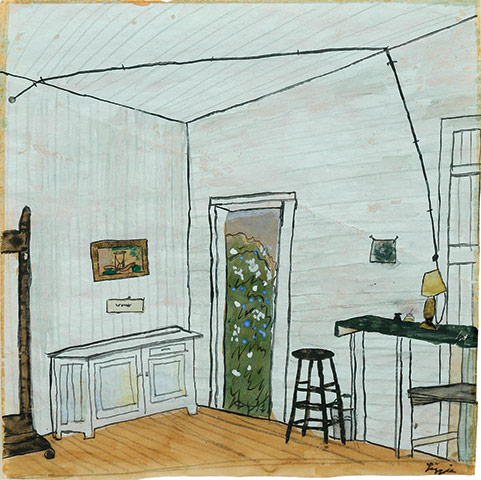
Loren MacIver’s studio in Key West. The general rule in a Bishop picture is: if a table exists, put flowers on it. Here, with the extension cord dramatically intersecting the lines and planes of the white room, she simply opened the door to the garden instead.
Photograph: Carcanet Press Photograph: Action images
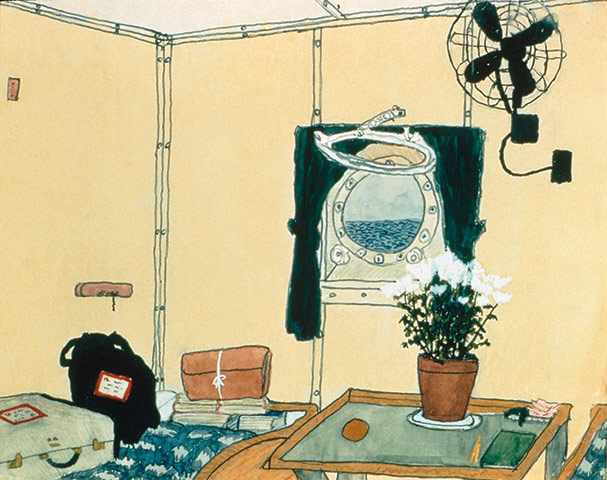
Books, bags and manuscripts loaded on board, this has the mise-en-scène of a single frame in The Adventures of Elizabeth Bishop. One can almost envision an Hergé-like figure of the poet herself, propped up on the second bunk with her unpacked paints.
Photograph: Carcanet Press Photograph: Action images
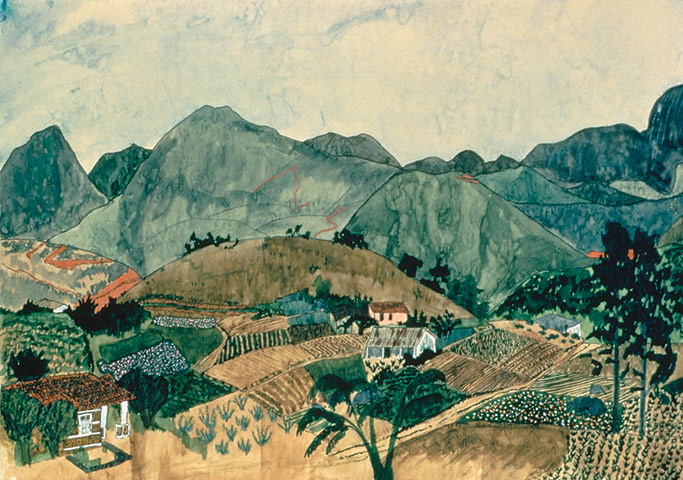
This picture may have been Bishop's largest. It belonged to her doctor Anny Baumann and disappeared after her death. Bishop wrote to Baumann, "It's big enough so that if you like any section of it you can cut that part out."
Photograph: Carcanet Press Photograph: Action images
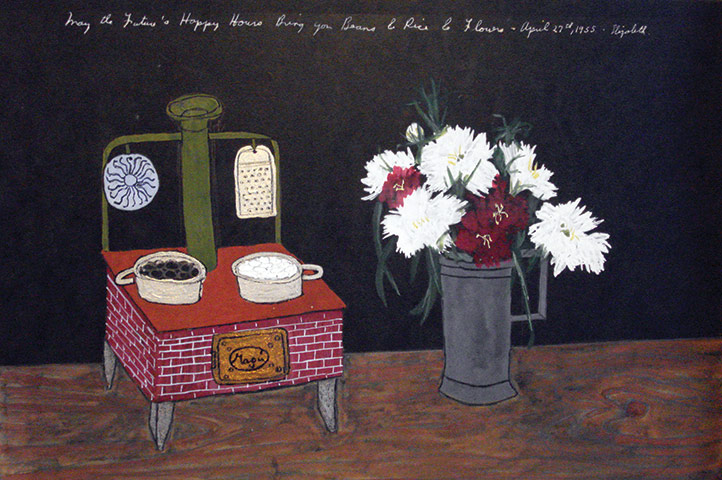
Given to Magù Leão, a friend of Bishop's in Brazil whose name appears on the stove, the painting's aggregate of whites plays over a wall of blackness, underlined by one of Bishop's specialties: wood grain.
Photograph: Carcanet Press Photograph: Action images

